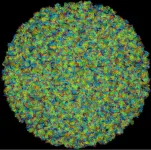(Press-News.org) Momentary shifts in mood, even those lasting just a matter of seconds, profoundly alter the brain’s response to pleasurable experiences in people with bipolar disorder, finds a new study by UCL researchers.
Previous research shows that mood can make us experience events in more positive or negative light – irrespective of having bipolar disorder. When we are in a good mood, we are drawn to viewing things more favourably – causing the good mood to rollover and gain momentum.
Equally, when we are upset we get drawn into perceiving bad outcomes as even worse, causing us to remain upset or get even more upset.
This “momentum” in mood can bias how we perceive events and the decisions we make.
Co-lead author, Dr Liam Mason (UCL Psychology & Language Sciences) said: “Imagine going to a new restaurant for the first time. If you happen to be in a fantastic mood, you’re likely to perceive the experience as being even better than it actually is.”
However, the new study published in Biological Psychiatry Global Open Science, found that people with bipolar disorder are more prone to this mood bias. The researchers have also discovered the connections in the brain that drive this mood bias effect.
For the new study, the researchers investigated what happens in the brains of people with bipolar disorder while playing a computerised Roulette game in which they experienced good and bad outcomes.
The researchers used a technique called functional Magnetic Resonance Imaging (fMRI) to scan the brains of 21 participants with bipolar disorder and 21 control participants while playing the game. This allowed them to track the neural responses of participants during moments of winning and losing. They measured the extent to which these “reward signals” in the brain were influenced by micro mood fluctuations over a matter of seconds.
To achieve this, the researchers used a computational model to quantify the mood momentum experienced by participants based on recent outcomes. They assessed whether, during periods of upward momentum (a series of wins), the brain was extra responsive to subsequent wins, and vice-versa for periods of negative momentum.
The team observed heightened neural activity in the anterior insula, an area of the brain linked to transient mood states, during periods of upward momentum in both control participants and participants diagnosed with bipolar disorder.
However, only participants with bipolar disorder exhibited a more pronounced influence of this momentum on their perception of subsequent wins and losses, as the researchers observed heightened activation in their striatum, a brain region that responds to pleasurable experiences.
Importantly, the researchers also highlighted that the amount of communication between these two regions – striatum and anterior insula – was reduced in participants with bipolar disorder.
Co-lead author Dr Hestia Moningka (UCL Psychology & Language Sciences) said: “In the control group, insula and striatum are both firing up in union, suggesting that participants were better able to keep their ‘mood in mind’ when perceiving rewards in the task.
“Meanwhile, participants with bipolar disorder showed the opposite; when there was higher momentum, they were less able to set this aside from how exciting they found the rewards to be.”
The researchers believe that these findings may help to explain why people with bipolar disorder can get stuck in a ‘vicious cycle’ where their mood escalates, and sometimes causes them to take bigger risks than usual.
Dr Moningka said: “We think these findings could help us one day move beyond existing interventions which aim to regulate mood often at the cost of dampening down exciting experiences.
“Instead, new interventions that help people with bipolar disorder to better decouple their mood from their perception and decisions is an avenue we are looking into.”
END
Brain regions that bias the brain’s response to pleasure in bipolar disorder identified
Peer reviewed | Experimental study | People
2024-06-13
ELSE PRESS RELEASES FROM THIS DATE:
Researchers in US, Ukraine simulate cell activity at ‘breathtaking’ timescales
2024-06-12
LAWRENCE — A partnership between scientists at the University of Kansas and collaborators in Europe, including war-torn Ukraine, will result in computer models of biological cells likely to hasten health breakthroughs by simulating molecular interactions inside cells with near experimental accuracy at vastly longer timescales than similar efforts.
The research is supported by the National Science Foundation’s IMPRESS-U (International Multilateral Partnerships for Resilient Education and Science System in Ukraine) program that aims to “support excellence in science and engineering research, education, and innovation through international collaboration and ...
NSF CAREER grant to investigate design of fluorescent protein sensors with computer simulations that may aid human health and disease
2024-06-12
DETROIT — Alice Walker, Ph.D., assistant professor of chemistry in the College of Liberal Arts and Sciences at Wayne State University, received a Faculty Early Career Development (CAREER) award from the National Science Foundation to fund her research on applying computational chemistry to the understanding and rational design of new fluorescent protein (FP) sensors.
“A sensor, chemically speaking, is a molecule that turns on or off in response to certain stimuli,” said Walker. “Proteins are good sensors because they have a florescent element; they essentially glow in the dark in response to when it touches something. ...
Study shows politicians deny misdeeds because we want to believe them
2024-06-12
Why do politicians lie and deny when they are caught up in political scandal?
According to a newly published study led by a University of Nebraska–Lincoln political scientist, the answer may be that their supporters prefer a less-than-credible denial to losing political power and in-group status because of a discredited standard-bearer.
“The driving question of our research is whether people are actually incentivizing politicians to deny wrongdoing and escape accountability,” said Pierce Ekstrom, assistant professor of political science at Nebraska.
“Certainly, there’s a very strong norm ...
Case study reveals important new details about rare second cancers related to CAR-T therapy
2024-06-12
WASHINGTON – A new detailed analysis of a patient’s second cancer after receiving CAR-T therapy for the initial cancer provides rare but important insights intended to offer helpful guidance for oncologists and pathologists about the clinical presentation and pathologic features involved in a CAR-T related second cancer.
The finding is reported June 13, 2024, in the New England Journal of Medicine.
CAR-T therapy is described by many as a new and promising treatment for blood cancers. CAR-T therapy is made from a patient’s ...
Risk of secondary cancers after CAR-T cell therapy low, according to large Stanford Medicine study
2024-06-12
A large study by researchers at Stanford Medicine has found that the risk of secondary blood cancers after CAR-T cell therapy — a cell-based cancer treatment that exploded on the scene in 2017 as a treatment for intractable blood cancers — is low, despite a Food and Drug Administration warning.
In November 2023, the FDA issued a warning about a risk of secondary cancers — particularly blood cancers — that may be associated with CAR-T cell therapy. The warning was preceded by a rising tide of ...
Mouse study identifies unique approach for preventing life-threatening complications after spinal cord injury
2024-06-12
COLUMBUS, Ohio – In response to stressful or dangerous stimuli, nerve cells in the spinal cord activate involuntary, autonomic reflexes often referred to as “fight or flight” responses.
These protective responses cause changes in blood pressure and the release of stress hormones into the blood stream. Normally, these responses are short-lived and well-controlled, but this changes after a traumatic spinal cord injury.
A first-ever study published in the journal Science Translational Research identifies a ...
Western agricultural communities need water conservation strategies to adapt to future shortages
2024-06-12
Reno, Nev. (June 12, 2024) – The Western U.S. is heavily reliant on mountain snowpacks and their gradual melt for water storage and supply, and climate change is expected to upend the reliability of this natural process. Many agricultural communities in this part of the country are examining ways to adapt to a future with less water, and new research shows that a focus on supplementing water supply by expanding reservoir capacity won’t be enough to avert future water crises.
Led by scientists at the Desert Research Institute ...
Does having a child with low birth weight increase a person’s risk of dementia?
2024-06-12
EMBARGOED FOR RELEASE UNTIL 4 P.M. ET, WEDNESDAY, JUNE 12, 2024
MINNEAPOLIS – People who give birth to infants less than 5.5 pounds may be more likely to have memory and thinking problems later in life than people who give birth to infants who do not have a low birth weight, according to a study published in the June 12, 2024, online issue of Neurology®, the medical journal of the American Academy of Neurology. The effect on memory and thinking skills was equivalent to one to two years of aging for those with low-birth-weight deliveries.
The study does not prove that delivery of a low-birth-weight ...
Depressive symptoms in young adults linked to thinking, memory problems in midlife
2024-06-12
EMBARGOED FOR RELEASE UNTIL 4 P.M. ET, WEDNESDAY, JUNE 12, 2024
MINNEAPOLIS – People who experience prolonged depressive symptoms starting in young adulthood may have worse thinking and memory skills in middle age, according to a study published in the June 12, 2024, online issue of Neurology®, the medical journal of the American Academy of Neurology. The study also found that depressive symptoms were experienced more often by Black adults than white adults.
“The processes that lead to dementia begin long before signs of the disease become apparent, and previous research has shown that Black adults have a higher risk of dementia than white adults,” said study author ...
Avoidable deaths during Covid-19 associated with chronic hospital nurse understaffing
2024-06-12
Philadelphia (June 12, 2024) – A new study published in International Journal of Nursing Studies showed that individuals with Covid-19 were more likely to die in hospitals that were chronically understaffed before the pandemic. This study is one of the first to document the continuing public health dangers of permitting so many U.S. hospitals to ration nursing care by understaffing nursing services.
The study, conducted by researchers at the Center for Health Outcomes and Policy Research (CHOPR) at the University ...
LAST 30 PRESS RELEASES:
Hope for global banana farming in genetic discovery
Mirror image pheromones help beetles swipe right
Prenatal lead exposure related to worse cognitive function in adults
Research alert: Understanding substance use across the full spectrum of sexual identity
Pekingese, Shih Tzu and Staffordshire Bull Terrier among twelve dog breeds at risk of serious breathing condition
Selected dog breeds with most breathing trouble identified in new study
Interplay of class and gender may influence social judgments differently between cultures
Pollen counts can be predicted by machine learning models using meteorological data with more than 80% accuracy even a week ahead, for both grass and birch tree pollen, which could be key in effective
Rewriting our understanding of early hominin dispersal to Eurasia
Rising simultaneous wildfire risk compromises international firefighting efforts
Honey bee "dance floors" can be accurately located with a new method, mapping where in the hive forager bees perform waggle dances to signal the location of pollen and nectar for their nestmates
Exercise and nutritional drinks can reduce the need for care in dementia
Michelson Medical Research Foundation awards $750,000 to rising immunology leaders
SfN announces Early Career Policy Ambassadors Class of 2026
Spiritual practices strongly associated with reduced risk for hazardous alcohol and drug use
Novel vaccine protects against C. diff disease and recurrence
An “electrical” circadian clock balances growth between shoots and roots
Largest study of rare skin cancer in Mexican patients shows its more complex than previously thought
Colonists dredged away Sydney’s natural oyster reefs. Now science knows how best to restore them.
Joint and independent associations of gestational diabetes and depression with childhood obesity
Spirituality and harmful or hazardous alcohol and other drug use
New plastic material could solve energy storage challenge, researchers report
Mapping protein production in brain cells yields new insights for brain disease
Exposing a hidden anchor for HIV replication
Can Europe be climate-neutral by 2050? New monitor tracks the pace of the energy transition
Major heart attack study reveals ‘survival paradox’: Frail men at higher risk of death than women despite better treatment
Medicare patients get different stroke care depending on plan, analysis reveals
Polyploidy-induced senescence may drive aging, tissue repair, and cancer risk
Study shows that treating patients with lifestyle medicine may help reduce clinician burnout
Experimental and numerical framework for acoustic streaming prediction in mid-air phased arrays
[Press-News.org] Brain regions that bias the brain’s response to pleasure in bipolar disorder identifiedPeer reviewed | Experimental study | People




